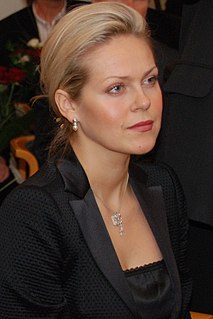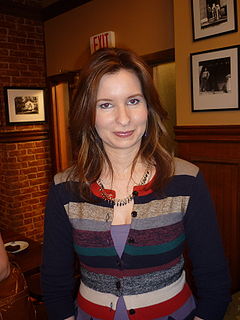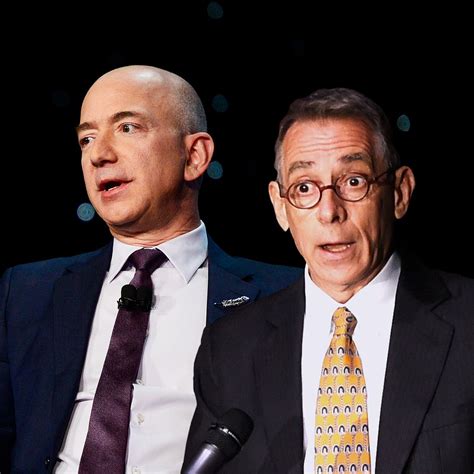A Quote by Louise J. Kaplan
Other people--grandparents, sisters and brothers, the mother's best friend, the next-door neighbor--get to be familiar to the baby. If the mother communicates her trust in these people, the baby will regard them as delicious novelties. Anybody the mother trusts whom the baby sees often enough partakes a bit of the presence of the mother.
Related Quotes
I think of the chimp, the one with the talking hands. In the course of the experiment, that chimp had a baby. Imagine how her trainers must have thrilled when the mother, without prompting, began to sign her newborn. Baby, drink milk. Baby, play ball. And when the baby died, the mother stood over the body, her wrinkled hands moving with animal grace, forming again and again the words: Baby, come hug, Baby come hug, fluent now in the language of grief.
The great constructive energies of the child ... have hitherto been concealed beneath an accumulation of ideas concerning motherhood. We used to say it was the mother who formed the child; for it is she who teaches him to walk, talk, and so on. But none of this is really done by the mother. It is an achievement of the child. What the mother brings forth is the baby, but it is the baby who produces the man. Should the mother die, the baby still grows up and completes his work of making the man.
Protection of the life of the mother as an excuse for an abortion is a smoke screen. In my 36 years of pediatric surgery, I have never known of one instance where the child had to be aborted to save the mother's life. If toward the end of the pregnancy complications arise that threaten the mother's health, the doctor will induce labor or perform a Caesarean section. His intention is to save the life of both the mother and the baby. The baby's life is never willfully destroyed because the mother's life is in danger.
The mother gazes at the baby in her arms, and the baby gazes at his mother's face and finds himself therein... provided that the mother is really looking at the unique, small, helpless being and not projecting her own expectations, fears, and plans for the child. In that case, the child would find not himself in his mother's face, but rather the mother's own projections. This child would remain without a mirror, and for the rest of his life would be seeking this mirror in vain.
We're very enthused about the idea that in the third trimester we actually give the mother a vaccine and her antibodies, the protective things that the immune system makes, actually pass through to the baby, both when the baby is born, and through the mother's milk. Because the baby's immune system is actually not very strong for that first few months, using the mother's immune system to do this - it's a very exciting idea and something that we're investing heavily in.
One baby is a patient baby, and waits indefinitely until its mother is ready to feed it. The other baby is an impatient baby and cries lustily, screams and kicks and makes everybody unpleasant until it is fed. Well, we know perfectly well which baby is attended to first. That is the whole history of politics.
I saw a dead elephant in one of Kenya's natural reserves. Around her were footprints of her baby elephant. This was just so sad, as three days before, perhaps the mother was still taking the baby around to play and to drink water. In her mind, she probably was thinking they had a life of decades to be together. However, the poaching happened so fast and everything collapsed. Without the protection of the mother, the baby elephant is likely to die too. That moment changed me.
When a baby is born the mother in particular enters into a new larger relationship with the world. She has become connected to all people. She is part of keeping us on earthnot the "us" comprised of individuals but the species itself. By protecting this one baby this gift a mother accepts life's clearest responsibility.
Her mother was a Christian Scientist who didn't believe in calling doctors. So when my mother caught whooping cough as a baby, stopped breathing and turned blue, her mother revived her by spanking her on the bottom. She saw life itself as a gift and saw her own survival as precious and a matter of chance.
From the moment of birth, when the Stone-Age baby confronts the twentieth-century mother, the baby is subjected to these forces of violence called love, as its father and mother and their parents and their parents before them, have been. These forces are mainly concerned with destroying most of its potential.
































